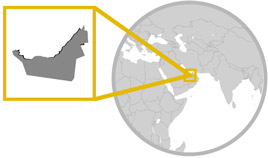Education System in Thailand:
Thailand has a comprehensive education system that comprises three main levels: primary, secondary, and tertiary education. Education is free and compulsory for children aged 6 to 14 years, covering grades 1 to 9. The education system is overseen by the Ministry of Education, and there are both public and private schools throughout the country.
Primary Education: Primary education in Thailand spans six years, from Prathom 1 (Grade 1) to Prathom 6 (Grade 6). Students study subjects such as Thai language, mathematics, science, social studies, English, and physical education.
Secondary Education: Secondary education consists of three years of lower secondary school (Mathayom 1 to Mathayom 3) and three years of upper secondary school (Mathayom 4 to Mathayom 6). In upper secondary, students can choose between academic and vocational tracks based on their interests and future career aspirations.
Tertiary Education: Tertiary education in Thailand includes universities, colleges, and vocational institutions. Admission to universities is typically based on a centralized national examination called the Thai University Central Admission System (TCAS). Thailand has many reputable universities offering a wide range of academic programs.
Private Schooling in Thailand:
Private schools in Thailand offer an alternative to the public education system and are popular among both Thai and expatriate families. Here are some key points about private schooling in Thailand:
Curriculum: Private schools in Thailand may follow various international curricula, such as the British, American, International Baccalaureate (IB), or other international standards. Some private schools offer a bilingual curriculum, providing instruction in both Thai and English.
Facilities and Resources: Private schools often have modern facilities, smaller class sizes, and well-equipped resources compared to public schools. They may offer specialized programs in arts, sports, or other extracurricular activities.
Language of Instruction: The language of instruction in private schools varies depending on the school's curriculum and focus. Some schools offer English as the primary language of instruction, catering to international students or Thai students seeking an English-based education.
Fees: Private schools generally charge tuition fees, which can vary significantly based on the school's reputation, facilities, and curriculum. International schools tend to have higher fees compared to local private schools.
Expat Community: Many private schools in Thailand have a diverse student body, with a mix of Thai and international students. These schools often foster a multicultural environment and provide support for expatriate families.
Choosing the right school for a child depends on various factors, including the child's educational needs, language proficiency, cultural preferences, and family preferences. It's essential for parents to research and visit different schools to find the best fit for their child's education and overall well-being.

